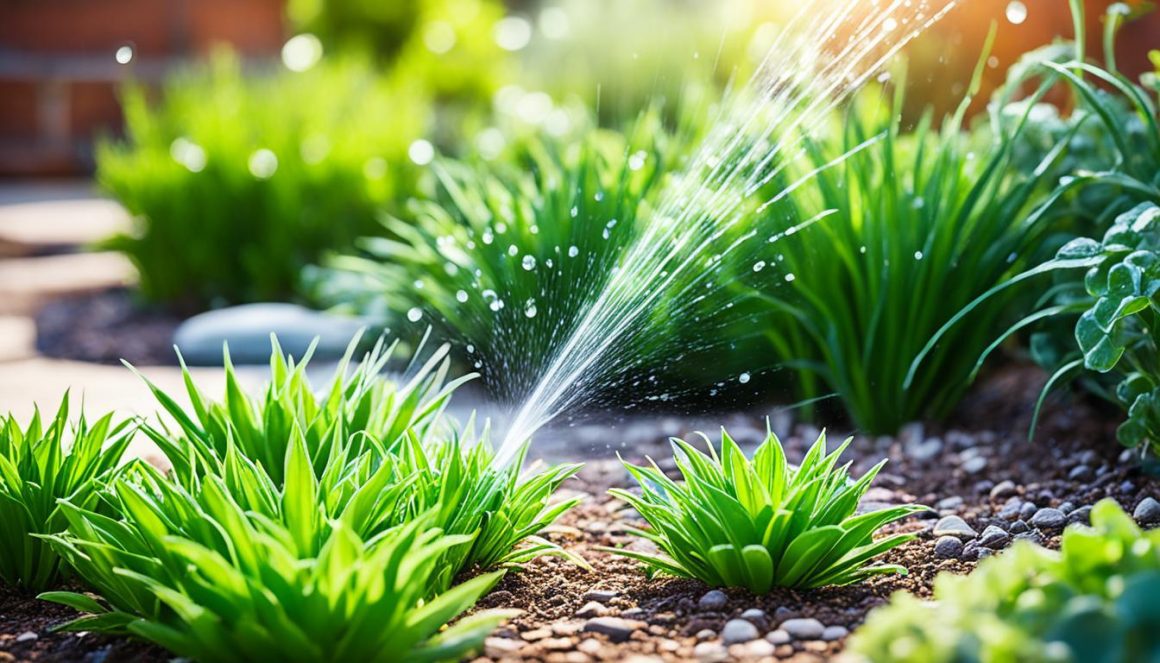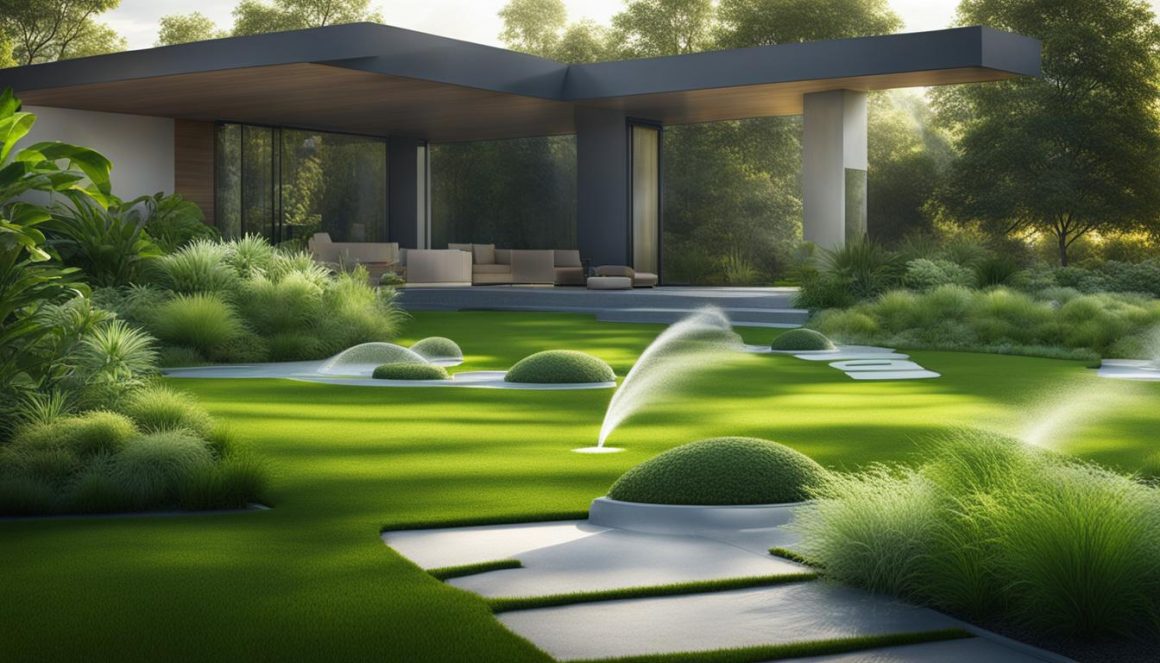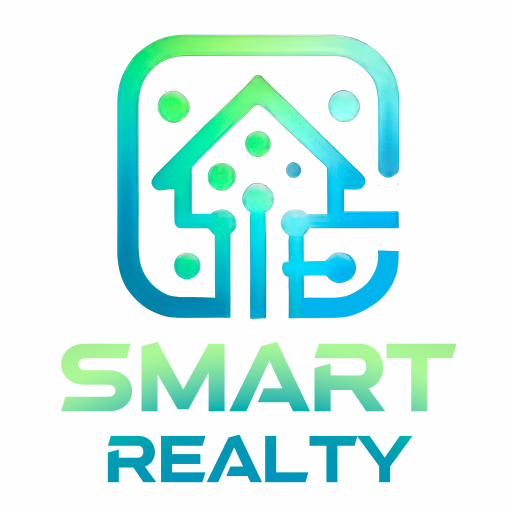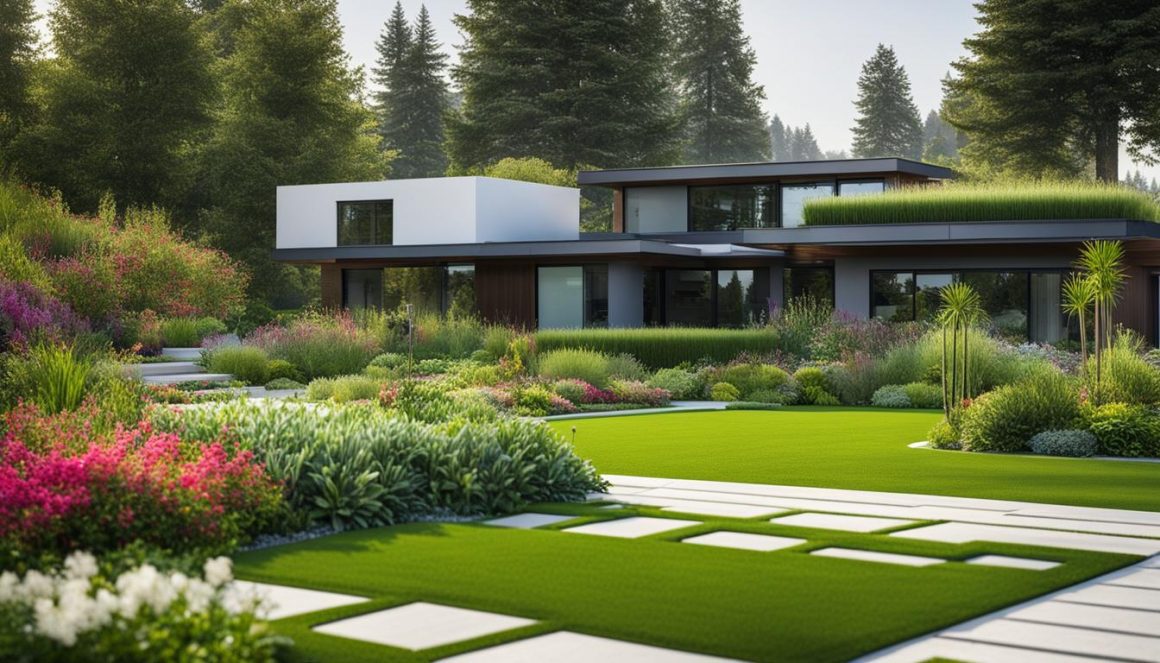Are you tired of wasting water, increasing costs, and struggling to maintain a healthy yard? What if we told you there was a way to achieve a greener yard while conserving water, saving money, and promoting plant health? Enter smart irrigation systems – the innovative solution to outdated and inefficient irrigation practices.
Smart irrigation systems utilize advanced technology to automate watering schedules based on specific landscape needs, weather conditions, and soil moisture levels. By incorporating features such as two-way communication control and real-time weather information, these systems allow users to monitor and control their irrigation systems from their mobile devices.
But how do smart irrigation systems work, and what are the benefits of implementing them? In this article, we will explore the problem with outdated irrigation systems, introduce you to the world of smart irrigation, explain how these systems work, and dive into the numerous benefits they offer. We will also take a closer look at Netro’s range of smart irrigation products and their sustainable product design. Lastly, we will discuss how smart irrigation systems integrate with leading smart home ecosystems and provide key takeaways for you to consider.
Key Takeaways:
- Smart irrigation systems offer a sustainable solution for achieving a greener yard.
- These systems automate watering schedules based on specific needs, weather conditions, and soil moisture levels.
- Benefits include water conservation, cost savings, efficient resource use, and remote control capabilities.
- Netro offers a range of smart irrigation products with advanced technologies.
- Implementing smart irrigation systems requires careful planning and consideration.
The Problem with Outdated Irrigation Systems
Many irrigation systems currently in use rely on outdated controllers operating on simple timers. While these controllers can provide reliable irrigation on a set schedule, they lack the ability to address specific landscape needs and adapt to changing weather conditions. They also do not provide any data tracking or visibility into the system, making it difficult to detect leaks or measure water applications. As a result, water waste occurs, leading to increased costs for businesses and homeowners. The shortcomings of these outdated controllers have made them a prevalent choice despite their inefficiencies.
Outdated controllers used in irrigation systems pose various challenges and limitations. These controllers operate on simple timers, which means they can only provide irrigation based on a predetermined schedule. They are unable to adjust the watering frequency and duration to cater to specific landscape needs, resulting in either an excessive or insufficient supply of water. This outdated approach leads to water waste, where water is applied when it is not needed, resulting in unnecessary expenses and environmental concerns such as water scarcity and ecosystem disruption.
Another issue with outdated controllers is the lack of visibility and data tracking. These controllers do not provide real-time information on water usage, soil moisture levels, or even potential leaks in the system. Without this visibility, it becomes challenging to detect and address issues promptly, leading to further water waste and costly maintenance. In addition, the inability to measure water applications accurately hinders efficient water management and prevents users from making informed decisions regarding their irrigation practices.
Furthermore, these outdated controllers do not incorporate modern technology or intelligent features that can adapt to changing weather conditions. They cannot consider factors such as rainfall or evaporation rates, leading to inefficient water usage and potentially harming plant health. The absence of two-way communication capabilities and real-time weather information prevents the controller from adjusting the irrigation schedule based on environmental conditions, resulting in suboptimal watering practices.
Considering the drawbacks of outdated irrigation system controllers, it is clear that continued reliance on these systems can lead to significant water waste, costly maintenance, and limited visibility into the irrigation process. It is crucial for homeowners and businesses to explore alternative solutions, such as smart irrigation systems, to overcome these challenges and achieve more efficient and sustainable irrigation practices.
Comparison of Outdated Controllers vs. Smart Irrigation Systems
| Factors | Outdated Controllers | Smart Irrigation Systems |
|---|---|---|
| Water Usage | Fixed schedule, leading to water waste | Adaptable to specific landscape needs |
| System Visibility | Lack of real-time data tracking | Real-time monitoring and alerts |
| Leak Detection | Difficult to detect leaks | Real-time leak detection |
| Weather Adaptability | No adjustment for changing weather conditions | Utilizes real-time weather data for efficient scheduling |
| Maintenance Costs | Costly maintenance due to water waste and system issues | Reduced maintenance costs due to optimized watering |
The table above highlights the differences between outdated controllers and smart irrigation systems. It underscores the inefficiencies of outdated controllers in terms of water usage, system visibility, leak detection, weather adaptability, and maintenance costs. On the other hand, smart irrigation systems offer the flexibility and intelligence needed for efficient irrigation, resulting in reduced water waste, lower maintenance costs, and improved overall performance.
Introducing Smart Irrigation Systems
Smart irrigation systems offer an alternative to outdated controllers by providing intelligent and efficient solutions for irrigation. These systems utilize advanced technology to optimize watering schedules and ensure water is applied only when and where it is needed. With features like two-way communication control and real-time weather information, smart irrigation systems revolutionize the way we manage our landscapes.
One of the key advantages of smart irrigation systems is their ability to adapt to changing weather conditions. By constantly receiving real-time weather information, these systems can adjust watering schedules accordingly, preventing overwatering during rainy periods and compensating for increased evaporation rates during hot spells. This intelligent approach optimizes water usage, conserves resources, and promotes sustainable living.
Two-way communication control is another significant feature of smart irrigation systems. By allowing for seamless interaction between the central controller and multiple sensors and stations, these systems ensure precise and targeted watering. With data flowing in both directions, users can receive valuable insights into the performance of their irrigation system and make informed decisions regarding irrigation adjustments.
Smart irrigation systems also come equipped with user-friendly apps that allow users to control and monitor their systems from their mobile devices. These apps provide a convenient way to manage watering schedules, adjust settings, and receive system notifications. With a few taps on their smartphones, users have complete control over their irrigation system, enabling effortless management and ensuring optimal plant health.
Implementing a smart irrigation system may seem like a daunting task, but it offers immense benefits in terms of efficiency, water conservation, and cost savings. By harnessing the power of technology, these systems provide intelligent solutions for managing irrigation needs in a sustainable and user-friendly manner.
Benefits of Smart Irrigation Systems:
- Efficient water usage through optimized watering schedules
- Sustainable living with reduced water consumption
- Cost savings on water bills through effective water management
- Improved plant health and growth
- User-friendly control and monitoring through mobile apps
Investing in a smart irrigation system is a wise choice for homeowners, businesses, and communities looking to achieve a greener and more sustainable environment. With their intelligent solutions, two-way communication, real-time weather information, and user-friendly apps, smart irrigation systems pave the way for efficient and responsible water management.
How Smart Irrigation Systems Work
Smart irrigation systems are designed to ensure efficient watering by considering various factors, including soil conditions, evaporation rates, weather conditions, and plant water use. These systems utilize two-way communication to enable seamless communication between central controllers and multiple sensors and stations. Flow sensors placed strategically around the grounds play a crucial role in the system’s functionality by transmitting real-time data to the central controllers.
This constant flow of information allows for the early detection of potential issues such as system breaks, leaks, water theft, and setting errors. By using flow sensors and two-way communication, smart irrigation systems can intelligently and precisely water the various areas of the landscape, optimizing water usage.
With this data-driven approach, smart irrigation systems can fill the gaps left by older, less efficient systems. They provide gardeners and landowners with the ability to control and monitor their irrigation systems with precision and ease, promoting sustainable water use while maintaining the health and vitality of their plants.
Benefits of Smart Irrigation Systems
Smart irrigation systems offer numerous benefits for users, ranging from lower maintenance costs to remote control capabilities. By leveraging advanced technologies such as cloud computing and effective resource utilization, these systems revolutionize traditional irrigation practices. Let’s explore some of the key advantages:
1. Lower Maintenance Costs
Smart irrigation systems optimize watering schedules based on specific landscape needs, weather conditions, and soil moisture levels. By avoiding overwatering and ensuring water is applied only when and where it’s needed, users can significantly reduce water consumption and associated costs.
2. Water Conservation
Smart irrigation systems play a vital role in water conservation efforts. They apply water efficiently, avoiding waste and promoting the responsible use of water resources. By conserving water, users contribute to sustainability and environmental preservation.
3. Reduced Irrigation Costs
With their automated and precise watering capabilities, smart irrigation systems eliminate guesswork and inefficiencies associated with traditional irrigation methods. By utilizing real-time data, users optimize water usage, leading to reduced irrigation costs over time.
4. Effective Use of Resources
Smart irrigation systems enable users to make effective use of resources, including water and energy. By applying water only where it’s needed and leveraging features like integrated weather information and soil moisture sensors, users can allocate resources efficiently and minimize waste.
5. Remote Control Capabilities
One of the significant advantages of smart irrigation systems is their remote control capabilities. Users can monitor and control their irrigation systems from anywhere, using mobile apps or web-based interfaces. This flexibility ensures convenience and enables timely adjustments based on changing weather conditions or specific requirements.
6. Cloud Computing
Smart irrigation systems leverage cloud computing technology to record and analyze data. This enables users to access valuable insights, reports, and recommendations for better water management and budget savings. The integration of cloud computing enhances the overall efficiency and effectiveness of the irrigation system.


To summarize, smart irrigation systems offer a range of benefits, including lower maintenance costs, water conservation, reduced irrigation costs, effective use of resources, remote control capabilities, and cloud computing features. By adopting these systems, users can optimize their irrigation practices, conserve water, save money, and contribute to a greener and more sustainable future.
Implementing Smart Irrigation Systems
Implementing smart irrigation systems requires careful consideration and planning. By choosing a two-way wireless system with SMART features, you can effectively automate the management process. This enables remote control and real-time monitoring, giving you the flexibility to manage your irrigation system from anywhere, at any time.
During the implementation process, it’s important to test and optimize the natural irrigation features of your smart system. These features can recognize and utilize rainfall, reducing the need for manual intervention and ensuring optimal water usage.
Additionally, understanding and exploring the cloud-based features of your smart irrigation system can streamline reporting and provide valuable insights for water management. Cloud computing allows for data recording and analysis, making it easier to track usage, detect patterns, and make informed decisions.
While smart irrigation systems are designed to minimize maintenance tasks, it’s still crucial to conduct monthly checks to ensure optimal performance. Regular maintenance helps identify any issues or inefficiencies and allows for prompt repairs or adjustments.
Lastly, scheduling your watering sessions during colder periods of the day can maximize efficiency by reducing evaporation. This simple adjustment takes advantage of the cold temperature difference and ensures that water is used effectively, minimizing waste.
By following these implementation guidelines, you can harness the full potential of your smart irrigation system, promoting water conservation, efficiency, and sustainable living.
Netro’s Smart Irrigation Products
Netro offers a range of smart irrigation products that incorporate advanced technologies for efficient watering. These innovative products are designed to take the guesswork out of irrigation, ensuring optimal water usage while promoting healthy and vibrant gardens.
Netro Controller
The Netro Controller is a cutting-edge smart irrigation system that revolutionizes the way gardens are watered. This intelligent system automates watering schedules based on plant needs, weather reports, and soil moisture levels. With its user-friendly interface and seamless integration with Netro’s smart watering technologies, the Netro Controller brings convenience and efficiency to garden management.
Netro Whisperer
The Netro Whisperer is a solar-powered plant sensor that provides real-time environmental information to help users better understand their garden’s needs. This sensor measures crucial factors such as light levels, soil moisture, and temperature, allowing for accurate and precise watering decisions. With the Netro Whisperer, users can ensure their plants receive the right amount of water at the right time.
Hose Faucet Timer
The Netro hose faucet timer is a game-changer when it comes to outdoor watering. This smart device allows for energy-saving and remote control of watering, making it easy to monitor water consumption and check weather history. With its intuitive design and seamless connectivity, the Netro hose faucet timer brings convenience and efficiency to every garden.
Netro Stream
The Netro Stream is an indoor irrigation pump that takes plant care to the next level. This innovative device ensures leafy and healthy plants through automatic watering and manual operation. With features such as customizable watering schedules and real-time notifications, the Netro Stream provides users with complete control over their indoor garden.


These smart irrigation products utilize Netro’s advanced smart watering technologies, allowing users to achieve the perfect balance between water conservation and healthy plants. With Netro’s innovative solutions, individuals can transform their gardens into thriving, sustainable landscapes.
Netro’s Sustainable Product Design
Netro is committed to sustainability in its product design, prioritizing durability, reparability, and customer satisfaction. By focusing on these key aspects, Netro ensures that their smart irrigation systems have a lasting impact while reducing waste and environmental impact.
Durability
Netro designs their products to withstand the test of time. By using high-quality materials and robust construction, their smart irrigation systems are built to last. This durability ensures that customers can enjoy the benefits of their Netro products for years to come, reducing the need for frequent replacements.
Reparability
Netro believes in the power of repairability. Instead of contributing to electronic waste, Netro designs their smart irrigation systems to be easily repaired. In the event that a component needs fixing or replacement, customers can rely on Netro’s support and guidance to get their system back up and running. Repairability not only extends the lifespan of their products but also promotes a more sustainable approach to consumption.
Reliable after-sale guarantee
Netro stands behind the quality and performance of their smart irrigation systems. They offer a reliable after-sale guarantee, allowing customers to try their products risk-free for 30 days. If customers are not completely satisfied, they can return the product for a replacement or receive a full refund. This commitment to customer satisfaction demonstrates Netro’s confidence in their products and their dedication to meeting the needs of their customers.
By prioritizing durability, reparability, and offering a reliable after-sale guarantee, Netro sets a high standard in the smart irrigation industry. Their sustainable product design not only benefits the environment but also provides customers with a long-lasting solution for efficient and eco-friendly garden watering.
Works with Leading Smart Home Ecosystems
Netro’s smart irrigation systems are designed to seamlessly integrate with leading smart home ecosystems, providing users with enhanced control and convenience. Through compatibility with popular platforms such as Amazon Alexa and Google Home, Netro enables users to effortlessly manage and monitor their irrigation systems using voice commands or through smart assistants. This integration brings a new level of accessibility and ease to garden watering, allowing users to interact with their smart irrigation system in a more intuitive and efficient manner.
Complete Control with Amazon Alexa and Google Home
By connecting Netro’s smart irrigation system with Amazon Alexa and Google Home, users can easily control and manage their irrigation schedules using voice commands. Whether it’s starting or stopping watering, adjusting watering durations, or checking the status of their irrigation system, users can simply speak to their smart assistant to handle these tasks. This hands-free control makes it incredibly convenient and efficient to manage garden watering, freeing users from the need to manually operate their irrigation system.
Enhanced Automation with Google Assistant
Netro’s compatibility with Google Assistant takes smart irrigation a step further by providing enhanced automation options. With Google Assistant integration, users can create custom voice commands and automated routines to trigger specific watering actions based on their preferences and needs. For example, users can set up a routine to water their garden every morning at a specific time or adjust watering schedules based on weather conditions. This level of automation allows users to truly personalize their irrigation system and optimize watering efficiency.
Expanding Possibilities with If This Then That (IFTTT)
Netro’s smart irrigation systems also work seamlessly with If This Then That (IFTTT), a platform that connects various smart devices and services. Through IFTTT, users can create custom applets or triggers that integrate their Netro irrigation system with other smart devices and services. For instance, users can set up an applet to automatically pause irrigation when rain is detected by a connected weather service. This integration with IFTTT offers endless possibilities for automation and customization, granting users greater control and flexibility in managing their smart irrigation system.
Netro’s compatibility with Amazon Alexa, Google Home, Google Assistant, and If This Then That brings the power of smart home automation to garden watering. By seamlessly integrating with these leading smart home ecosystems, Netro enables users to control and monitor their irrigation systems with ease, enhance automation capabilities, and expand the possibilities of smart home integration.
Conclusion
Smart Irrigation Systems offer an efficient and sustainable solution for individuals seeking a greener yard while conserving water and promoting plant health. By harnessing advanced technology, such as two-way communication control and real-time weather information, these systems optimize watering schedules based on specific landscape needs, weather conditions, and soil moisture levels. The benefits of implementing Smart Irrigation Systems are extensive and include lower maintenance costs, reduced water bills, water conservation, effective use of resources, remote control capabilities, and cloud-based features for data analysis.
Implementing a Smart Irrigation System is made easy with the range of innovative products offered by Netro. With their expertise and customer focus, Netro provides individuals with the tools they need to transition to smart irrigation and enjoy the benefits of sustainable living. By incorporating advanced technologies in their smart irrigation products, Netro ensures efficient watering practices that reduce waste and promote plant health.
With a Smart Irrigation System, individuals can achieve a greener yard, contribute to water conservation efforts, save on costs, and maintain the health of their plants. By leveraging the power of technology and embracing sustainable living, we can create more efficient and environmentally friendly irrigation practices that benefit both our landscapes and the planet.

